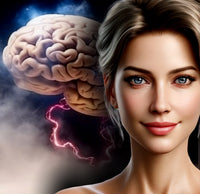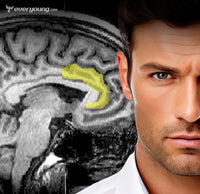2. Hormones Affecting Mood
- Estrogen. Estrogen broadly influences mood and cognitive functions, impacting neurotransmitter systems, including serotonin and dopamine. High estrogen levels, as seen during the ovulatory phase, are generally associated with improved mood, increased energy, and enhanced cognitive functions. Conversely, rapid declines in estrogen, as observed during the premenstrual phase, can contribute to mood swings and irritability.
- Progesterone. Progesterone, which rises during the luteal phase, is often associated with mood destabilization in susceptible individuals. Its calming effects can sometimes lead to feelings of sadness or affect emotional sensitivity. However, the impact of progesterone on mood is complex and can interact with other hormonal changes, making its effects less predictable.
- Testosterone. Although typically considered a male hormone, testosterone also occurs in women and fluctuates across the menstrual cycle. Its levels peak around ovulation, contributing to increased libido and potentially affecting mood, though its mood-related effects are less well-studied than those of estrogen and progesterone.
The Everyoung Health Method provides extensive information that helps understand these dynamics, underscoring the importance of considering individual differences. Hormonal fluctuations can affect mood widely among women, influenced by genetic predispositions, overall health, stress levels, and environmental circumstances. Therefore, personalized approaches are always needed to address hormonal impacts on psychological well-being.









